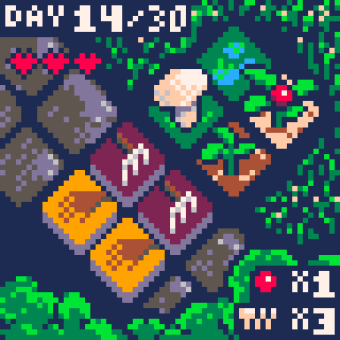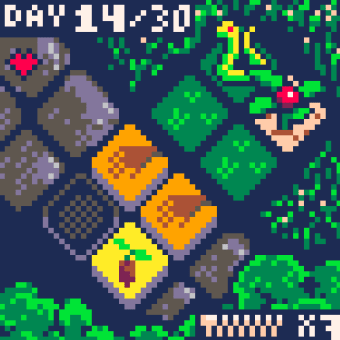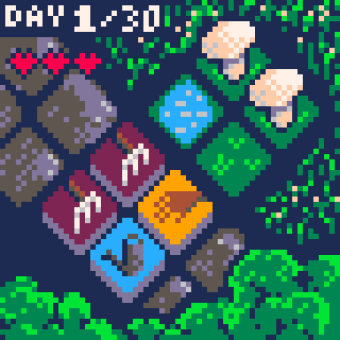A quirky block puzzle with a twist
Madness in Square Garden is a free puzzle game developed by Bálint Magyar. Rather than relying on flashy effects or narrative, it presents a minimalist but quirky challenge: arrange blocks on a grid to form the largest possible square. With items such as fruits, vegetables, and mushrooms filling each block, the game blends simple mechanics with a playful sense of humor.
Its appeal comes from the randomly generated boards and hazards, which keep sessions unpredictable. Players also encounter snakes that add tension to placement decisions. The daily “action block” mechanic shakes things up further, ensuring that no two rounds feel exactly alike. While its structure is simple, the mix of randomness and risk-reward decisions makes it surprisingly addictive.
What makes Madness in Square Garden fun?
At its core, the game offers a straightforward but satisfying block-puzzle experience. By rotating and flipping pieces, players try to build the biggest square possible while also harvesting items along the way. The system is easy to learn, making it accessible even for casual puzzle fans, yet the constant variety from random boards provides enough replay value to keep people experimenting for longer sessions.
Its charm also lies in the quirky theme and presentation. Rather than abstract shapes, blocks are filled with colorful produce and odd elements, creating a lighthearted atmosphere. The addition of snakes as hazards forces players to think strategically, adding an extra layer of depth beyond simple matching. This playful combination of simplicity and unpredictability gives the game its unique identity.
That said, its minimalism is both a strength and a limitation. Some players may find that the novelty wears off after shorter bursts, since there is no overarching progression or long-term reward system. The game’s design focuses entirely on puzzle rounds, so those seeking complex mechanics or evolving challenges may find it too lightweight.
A light puzzle worth picking up
Madness in Square Garden succeeds as a casual, pick-up-and-play puzzler. Its random boards, playful hazards, and humorous theme keep it fresh, while its simple mechanics ensure anyone can jump in without fuss. Though limited in scope, it’s an enjoyable detour for fans of quirky indie projects or anyone looking for a fun mental break.







